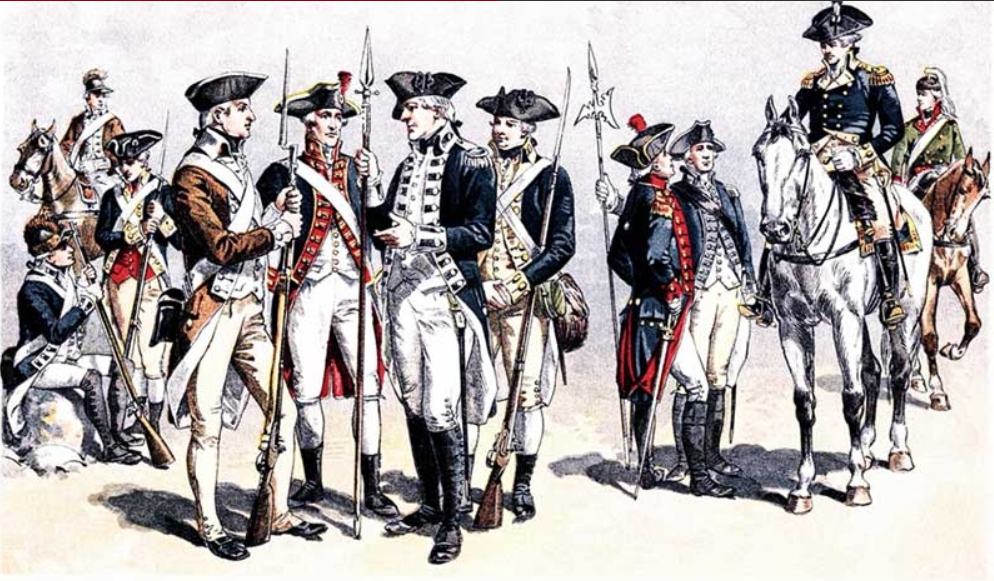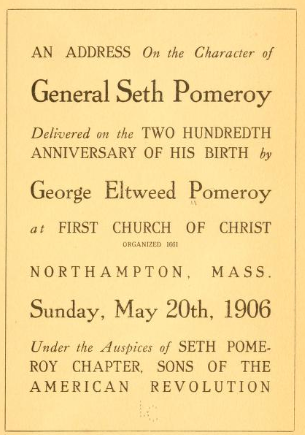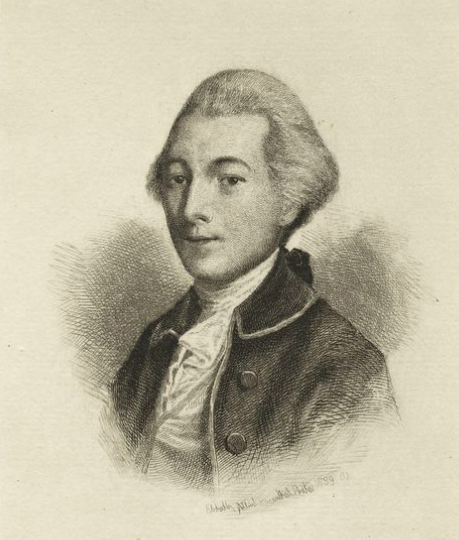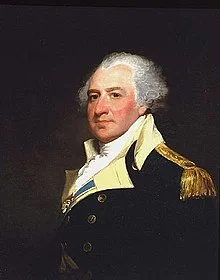Every Major General in the Continental Army
After a year and a half, I have finally published an article about every Major General in the Continental Army.
Presented here is a master list of all 29 Major Generals with their dates of service and a brief description of their role in the war.
A big thank you to Michael Troy over at the American Revolution Podcast for sharing his data with me. The program is high quality and you should check it out on all podcasting apps or thru the website here.
Artemus Ward
Massachusetts - 17th June, 1775, to 23d April, 1776 (resigned).
Artemus Ward was the first Commander-in-Chief of the American forces immediately after Lexington and Concord.
Charles Lee
Virginia - 17th June, 1775, to 10th January, 1780 (resigned).
Charles Lee hoped to be appointed Commander-in-Chief and made Washington’s life difficult as a result.
Philip Schuyler
New York - 19th June, 1775, to 19th April, 1779 (resigned).
Philip Schuyler of New York was in command of the Northern Department through the first half of the Revolutionary War.
Israel Putnam
Connecticut - 19th June, 1775, to 3d June, 1793 (stroke Dec. 1779).
Israel Putnam was known for his military prowess before the Revolution. He led the soldiers in the Battle of Bunker Hill but had limited success afterward.
Richard Montgomery
New York - 9th December, 1775, to 31st December, 1775 (died).
Richard Montgomery led the Invasion of Canada but was killed during the Battle of Quebec and became a martyr to the Patriot Cause.
John Thomas
Massachusetts - 6th March, 1776, to 30th May, 1776 (died).
John Thomas oversaw the fortification of Dorchester Heights during the Siege of Boston, then was sent to take over the Continental soldiers in Canada but died almost immediately upon arrival.
Horatio Gates
Virginia - 16th May, 1776, to 3d November, 1783 (end of war).
Horatio Gates was given credit for winning the Battle of Saratoga but endured tremendous failure when he was given command of the Southern Department.
William Heath
Massachusetts - 9th August, 1776, to 3d November, 1783 (end of war).
William Heath spent the majority of the Revolutionary War in the Hudson Valley. He is one of the few Major Generals who rarely led troops in the field.
Joseph Spencer
Connecticut - 9th August, 1776, to 13th January, 1778 (resigned).
Joseph Spencer served just a short time in the Northern Theater and left the army after receiving criticism for aborting a mission in Rhode Island.
John Sullivan
New Hampshire - 9th August, 1776, to 30th November, 1779 (resigned).
John Sullivan signed the Continental Association before serving in the Continental Army. He led the Sullivan Expedition and was twice Governor of New Hampshire.
Nathaniel Greene
Rhode Island - 9th August, 1776, to 3d November, 1783 (end of war).
Nathaniel Greene is best known for taking over the Southern Department and was second only to Washington in importance in winning the war.
Benedict Arnold
Connecticut - 17th February, 1777, to 25th September, 1780 (switched sides).
Benedict Arnold was a hero of the Continental Army, then he became the Revolution’s greatest villain.
William Alexander
New Jersey - 19th February, 1777, to 15th January, 1783 (died).
William Alexander, also known as Lord Sterling, was the only General to claim to be a member of the British nobility.
Thomas Mifflin
Pennsylvania - 19th February, 1777, to 25th February, 1779 (resigned)
Thomas Mifflin was the first Quartermaster General of the Continental Army. He also served as President of the Confederation Congress and Governor of Pennsylvania.
Arthur St. Clair
Pennsylvania - 19th February, 1777, to 3d November, 1783 (end of war).
Arthur St. Clair also served as a President of the Confederation Congress and would later be the first Governor of the Northwest Territory.
Adam Stephen
Virginia - 19th February, 1777, to 20th November, 1777 (cashiered).
Adam Stephen led forces in several important battles in the Mid-Atlantic debates but accidentally had his men fire on other Continental Soldiers at Germantown and was cashiered out of the army.
Benjamin Lincoln
Massachusetts - 19th February, 1777, to 29th October, 1783 (end of war).
Benjamin Lincoln was in charge of the Southern Department when he was forced to surrender his army to the British at Charleston. Was given the honor of receiving Cornwallis’ sword when the Redcoats surrendered at Yorktown.
Paul J. G. de M. Lafayette
France - 31st July, 1777, to 3d November, 1783 (end of war).
Lafayette was a young Frenchman who disobeyed King Louis XVI and sailed to help the Americans. He won the friendship of everyone he met, led Continental Soldiers in several battles and became an American hero in the process.
Philip De Coudray
France - 11th August, 1777, to 10th September, 1777 (died).
Philip De Coudray came to the United States from France and was appointed as the first Inspector General. He died shortly after his appointment in a horsing accident.
John de Kalb
France - 15th September, 1777, to 19th August, 1780 (died).
John de Kalb was a German serving in the French Army when he came to the United States. He was one of the few Major Generals who were killed in action, dying at the disastrous Battle of Camden.
Robert Howe
North Carolina - 20th October, 1777, to 3d November, 1783 (end of war).
Robert Howe spent time as commander of the Southern Department but was forced to surrender at Savannah.
Alexander McDougall
New York - 20th October, 1777, to 3d November, 1783 (end of war).
Alexander McDougall was an important Founder from New York who spent most of the war with William Heath guarding the Hudson River.
Thomas Conway
France - 13th December, 1777, to 28th April, 1778 (resigned).
Thomas Conway was a Frenchman who spent an extremely short time as Inspector General as his secret criticism of George Washington became public and he was embarrassed into a resignation.
Frederick W. A. Steuben
Prussia - 5th May, 1778, to 15th April, 1784 (end of war).
Baron von Steuben overhauled the Continental Army during the winter at Valley Forge.
William Smallwood
Maryland - 10th September, 1780, to 3d November, 1783 (end of war).
William Smallwood participated in most of the important battles in the Mid-Atlantic and went on to become an important leader in Maryland.
Samuel H. Parsons
Connecticut - 23d October, 1780, to 22d July, 1782 (resigned).
Samuel Holden Parsons led men from the Battle of Bunker Hill through the end of the war. Would later become a judge on the frontier.
Henry Knox
Massachusetts - 15th November, 1781, to 20th June, 1784 (end of war).
Henry Knox was the first Major General appointed after Yorktown. He is famous for his artillery train early in the war and become Secretary of War later on.
Louis L. Duportail
France - 16th November, 1781, to 10th October, 1783 (end of war).
Louis Duportail came from France and was appointed as Commander of the Corps of Engineers. He built fortifications up and down the coast, including at Yorktown.
William Moultrie
South Carolina - 15th October, 1782, to 3d November, 1783 (end of war).
William Moultrie was the last person appointed as a Major General in the Continental Army. He is best known for his work in the Battle of Sullivan’s Island where he gave South Carolina both its flag and its State motto.
Here are some other lists of Founders I have written:
Future Founders - The 11 Most Important Stamp Act Congress Delegates
Benedict Arnold - 8 Reasons for his Treason
Founding Physicians - The Top 10 Doctors of the American Revolution
I’ve recently launched a new shop on Founder of the Day.
Check out some of my products through the link below, there just might be something you like!






